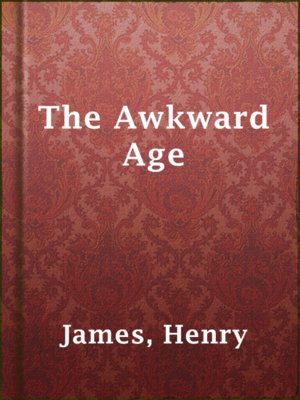


If there is a work in his canon that flies in the face of expectation and merits description in broadly synonymous terms such as “objective,” “dramatic,” or even “behaviorist” in view of its scenic quality and sustained dialogic makeup, it is no doubt the story of Nanda Brookenham and her smart associates in fin-de-siècle, well-to-do London society. It is part of the critical convention to argue that Henry James’s post-dramatic evolution toward modernist forms of fiction in the late 1890s was enlivened by the occurrence of a narrative oddity such as The Awkward Age (1898–99).


 0 kommentar(er)
0 kommentar(er)
